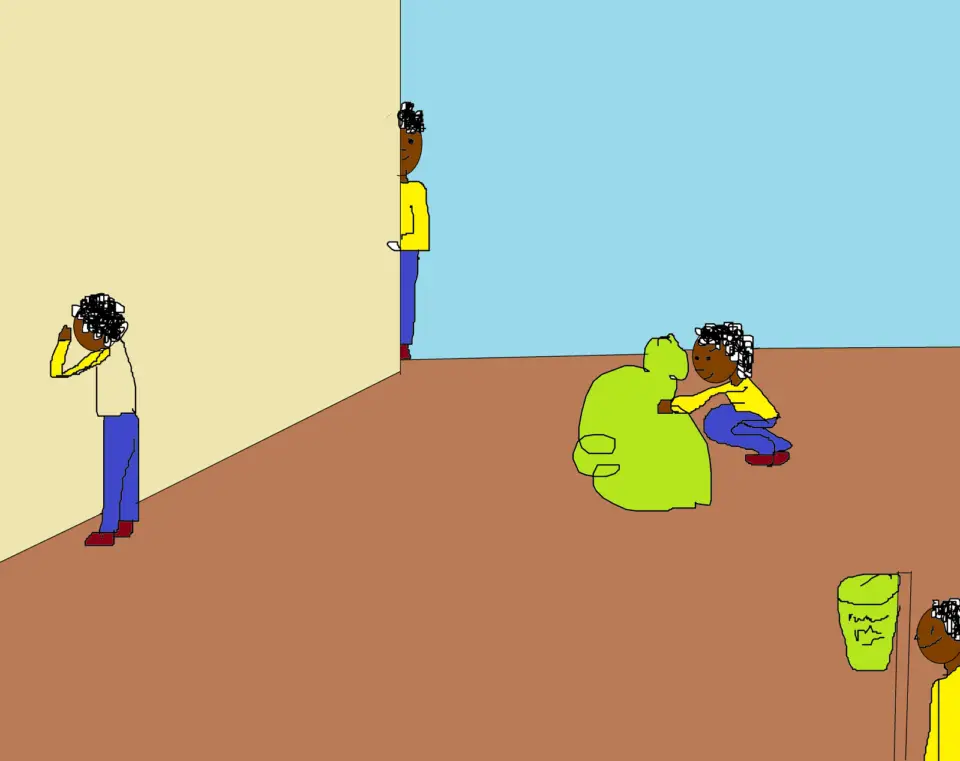Table of Contents
Cultural Games in Ethiopia: Akukulu Game/Akukulu Ethiopian Traditional Game

This traditional Ethiopian game, usually played with about 6-15 people, is similar to hide-and-seek.
The game begins with one player in the group (the seeker) staring at a wall (known as his/her house, home base, or the Mariam), avoiding eye contact with the other players.
The others, in the meantime, have to find hiding places.
After a while, the seeker on the wall will begin to make the “coocoolu” sound, imitating the sound hens make in the morning.
The others attempting to hide will reply “alnegam” or it is not morning yet, implying that the hen (seeker) should not leave his/her house.
The seeker will continue to make the sound till everyone in the group trying to hide has hidden themselves and start to reply “nega” or the sun has risen.
At this point, the seeker will actively attempt to find those in the group that are now hidden.
In the meantime, the hidden have to make it stealthily to the seeker’s wall or “home” and place their hand on it and kiss their own hand. This makes them safe.
The seeker will have to find the hidden before they reach the wall, and call out their name and go to his wall “home” and touch the wall while kissing his hand.
If the seeker arrives before the hidden whose name was called out, then the hidden will be “captured”, and remain waiting at the seeker’s wall.
The winners are those that make it safely to the wall.
The Role of Community in Akukulu
Like many traditional games, Akukulu emphasizes the importance of community and teamwork. While the game is competitive, it is also a social activity that encourages children to play together, form bonds, and develop physical skills. Running, quick reflexes, and strategy are key to avoiding the catcher, but the game also promotes fun and lightheartedness.
The communal aspect of choosing the catcher through singing and chanting fosters a sense of inclusion and participation.
In Ethiopia, children often play games like Akukulu in their villages or neighborhoods, using the available natural landscape as their playground. Whether it’s an open field, a patch of dirt, or even the space between houses, the game adapts to the environment, making it a flexible and accessible form of play.
Cultural Significance
Traditional Ethiopian games like Akukulu hold deeper cultural significance as well.
These games are often played during social gatherings, festivals, or school breaks, providing an opportunity for children to engage in physical activity while learning about the values of cooperation and respect.
In many ways, Akukulu and other games serve as a bridge between generations. Grandparents, parents, and older siblings pass down these games, along with their rules, songs, and rhymes, ensuring that the tradition continues. Through these simple yet meaningful activities, Ethiopian children gain a sense of identity and belonging.
Modern Relevance
In today’s fast-paced world, where technology often dominates children’s playtime, traditional games like Akukulu remind us of the joy of simple outdoor activities. In rural areas of Ethiopia, where access to digital entertainment is limited, games like Akukulu still thrive as essential parts of daily life. However, even in urban settings, efforts are being made to preserve these games as part of the country’s cultural heritage.
Gabata (also spelled “Gebeta”) is the generic term for mancala games played in Ethiopia and Eritrea. It is used for many two-row games, but also for several three-rank mancala games.
Traditional Games in Ethiopia/Cultural Games in Ethiopia/Ethiopian Traditional Games
If you would like to know more about traditional cultural games in Ethiopia, click here.
Ethiopian Traditional Sports in Amharic
If you would like to know more about Ethiopian traditional sports in Amharic, click here.
Photo credits: Origins